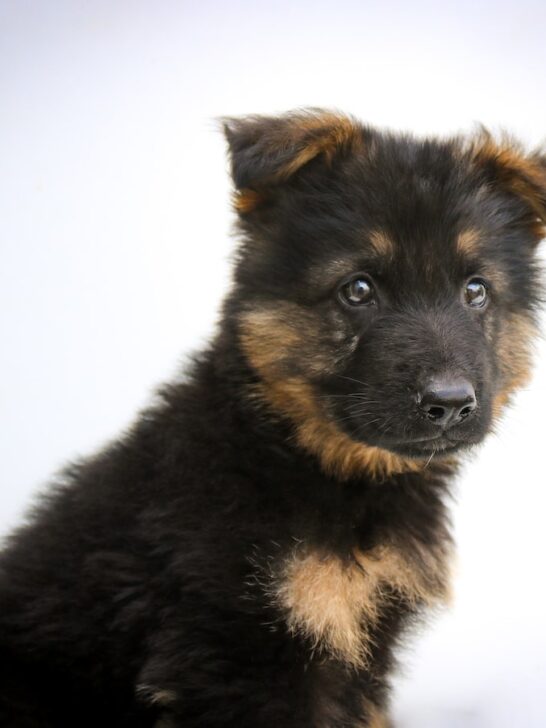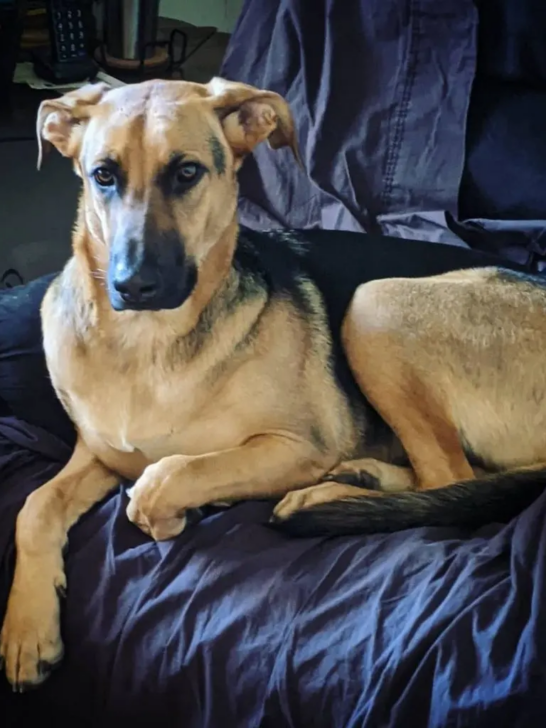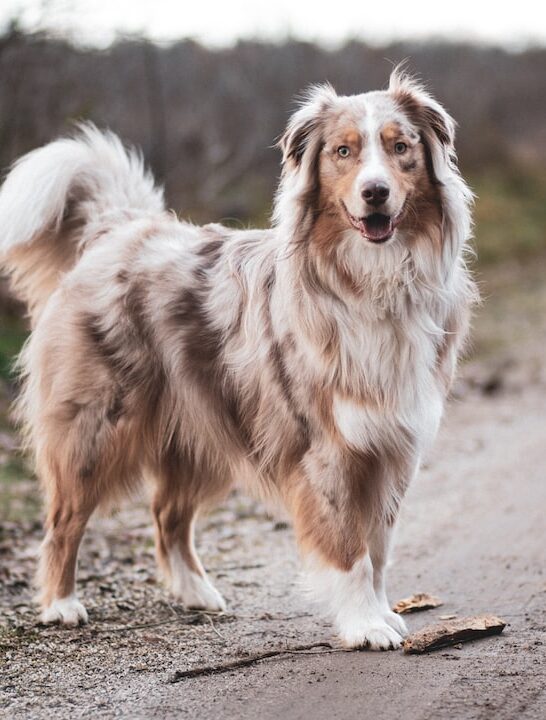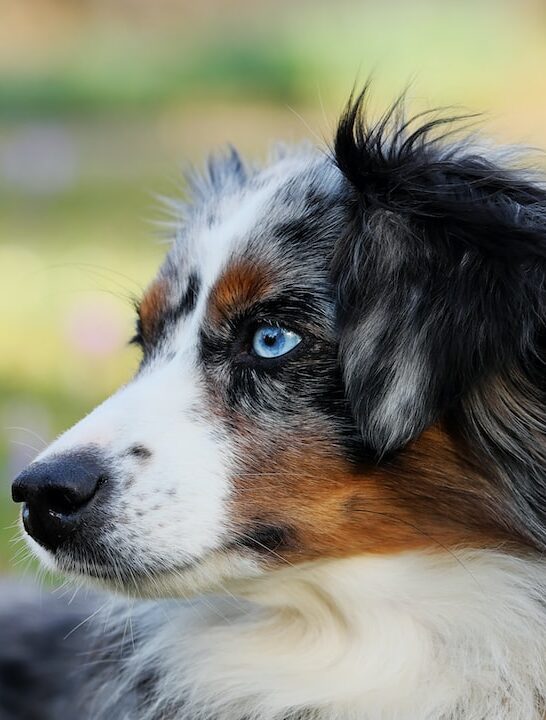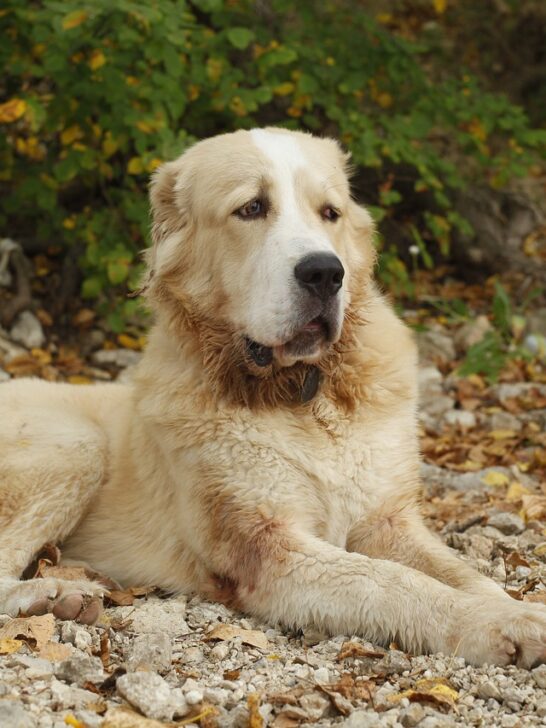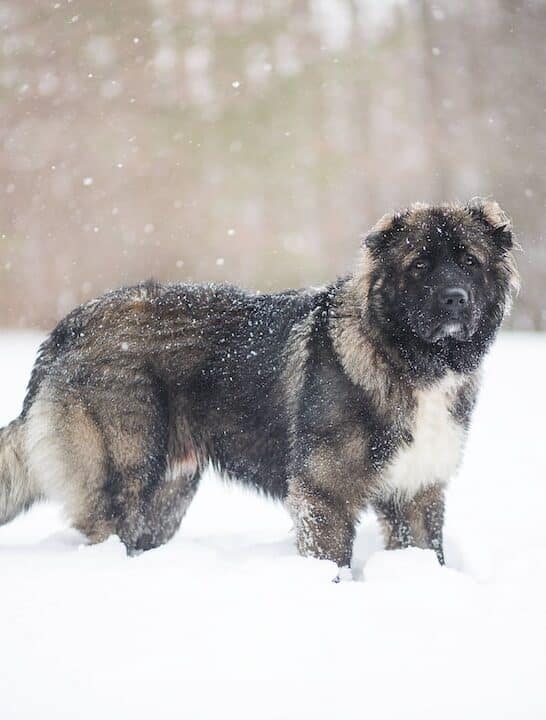Do German Shepherd Puppies Change Color? What You Need to Know About Your Puppy’s Changing Coat
German Shepherd puppies have a lot of growing up to do in a very short period.
So many changes are taking place, starting around 10 days old when your tiny GSD puppy’s eyes open and they glimpse the world for the first time.
But there are many more changes yet to come, one of which is the transition from the puppy coat to the full adult German Shepherd coat.
Your GSD puppy’s coat will change in length, texture, fullness, and color – and likely more than once!
This is the article you need to read if you want to learn all about what to expect as your German Shepherd puppy starts to grow its adult coat and you see color changes along the way.
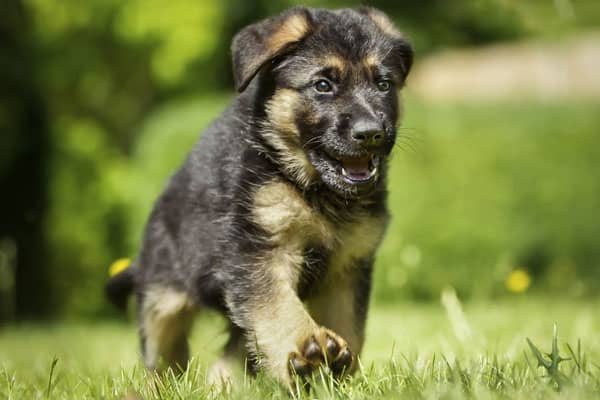
Watch a German Shepherd Puppy’s Coat Change Over Three Years
In this sweet video, you can watch Kendahl, a black sable German Shepherd puppy, grow up and into her adult GSD coat.
If you are new to learning all about German Shepherd dogs, you may not yet know that the classic “black and tan” isn’t the only coat color a puppy can have!
Black sable is just one of several adult coat colors that a GSD dog can display.
In this short video, you can see some of the many adult German Shepherd colors and patterns that may develop.
What Does the German Shepherd Breed Standard Say About Coat Color?
After watching the videos in the previous section here, you may be understandably curious about how the official purebred German Shepherd breed standard addresses all of this coat color variation!
This is especially the case if you are planning to breed your GSD puppy or you want to enter your German Shepherd into dog shows.
But even if neither of these is of interest, it is still neat to learn more about all the purebred coat colors.
Recommended reading:
According to the American Kennel Club (AKC), these are the coat colors that are permissible for German Shepherd dogs in the show ring:
- Bi-color
- Black
- Black and cream
- Black and tan
- Black and silver
- Black and red
- Blue
- Sable
- Grey
- White
- Liver
These are all approved show-ring standard coat colors in case you want to show your GSD.
But is there any way to know for sure what coat color your GSD puppy will have when they grow up? Let’s find out!
German Shepherd Puppyhood Lasts Longer Than You May Think!
First-time German Shepherd owners are often very surprised to learn that a large breed dog like the German Shepherd can continue growing for 24 to 36 months.
An adult German Shepherd dog may weigh anywhere from 50 to 90 pounds and stand anywhere from 22 to 26 inches tall (paw pad to shoulder).
That is a lot of growth that needs to get done. Growing too fast can put pressure on a GSD puppy’s growth plates, bones, muscles, and ligaments, causing a painful condition called panosteitis (nickname: “growing pains”).
For this reason, genetically speaking, it is advantageous for a large breed puppy to grow in spurts, spacing it out over time.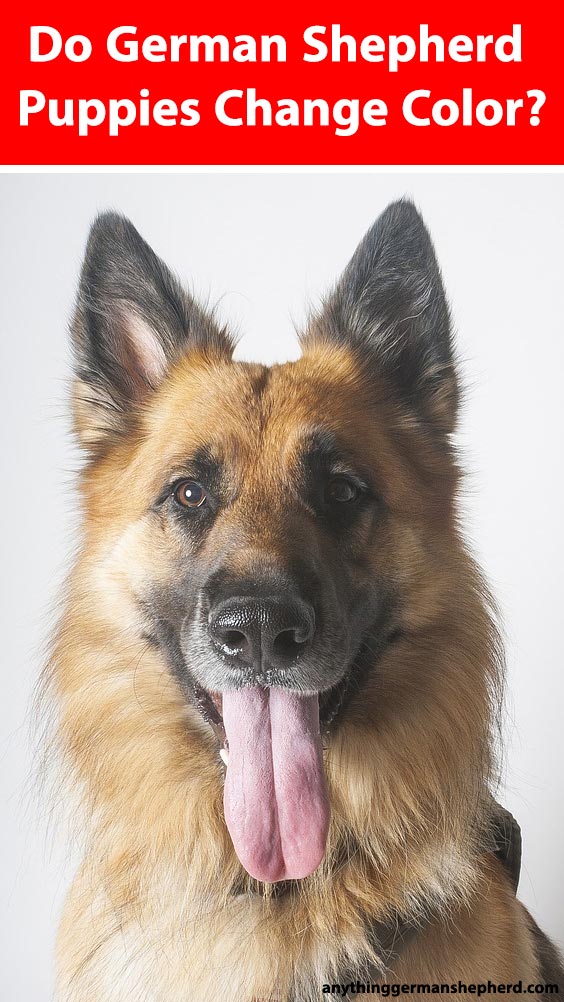
German Shepherds that will be in the lower weight/height range as adults – often these are female GSDs but not always – may finish all their growing by 18 to 24 months.
But the biggest German Shepherds that will grow to 90+ pounds and stand to the full height of 26+ inches may continue growing for up to 36 months.
This is important to know because you may see your dog’s coat color, texture, and consistency changing quite a bit throughout the whole growth cycle.
A Brief Crash Course in German Shepherd Coat Color Genetics
What causes a German Shepherd dog’s coat color to be solid, bi-color, or patterned (sable, brindle, et al)?
It probably won’t surprise you to learn that dog genes and people genes work pretty similarly when it comes to determining color.
Canine coat color experts explain that dogs have two basic pigments: eumelanin (melanin) and phaeomelanin. Let’s take a closer look at each.
Eumelanin
Eumelanin pigment always defaults to black. But eumelanin can be altered by the introduction of other genes, turning it blue, liver, or Isabella (pale fawn/yellow/parchment).
Eumelanin not only determines basic coat color but also controls for iris (eye) colors and nose colors.
Phaeomelanin
Phaeomelanin always defaults to red. Here, “red” can span the gamut from deep russet browns to very pale gold and yellow.
Like eumelanin, the introduction of different genes can determine where on the red spectrum phaeomelanin expresses (shows up).
Unlike eumelanin, phaeomelanin only affects coat color and not eyes or nose.
You can see a coat color comparison chart at German Shepherd Vom Slekira Kennels. This is the chart many breeders use to design breeding programs to focus on certain coat colors.
What Factors Impact a German Shepherd Puppy’s Adult Coat Color?
Not surprisingly, the number one factor that impacts what color your GSD puppy’s adult coat color eventually works out to be is the puppy’s parents.
Each parent dog contributes a set of genes that control for color: coat color, eye (iris) color, and nose color as well as skin color.
Some genes are called “dominant” genes, and a puppy only needs to get a set of these genes from one parent dog to express that color.
Some genes are called “recessive” genes, and a puppy needs to get a set of these genes from both parent dogs to express that color.
If you have a preference for a specific adult coat color, whether because you want to show your GSD or you are developing your breeding program, the best guarantee is to work closely with a knowledgeable breeder who understands coat color genetics.
There is one exception to the coat color change to be aware of: often GSD puppies born with white coats will stay white.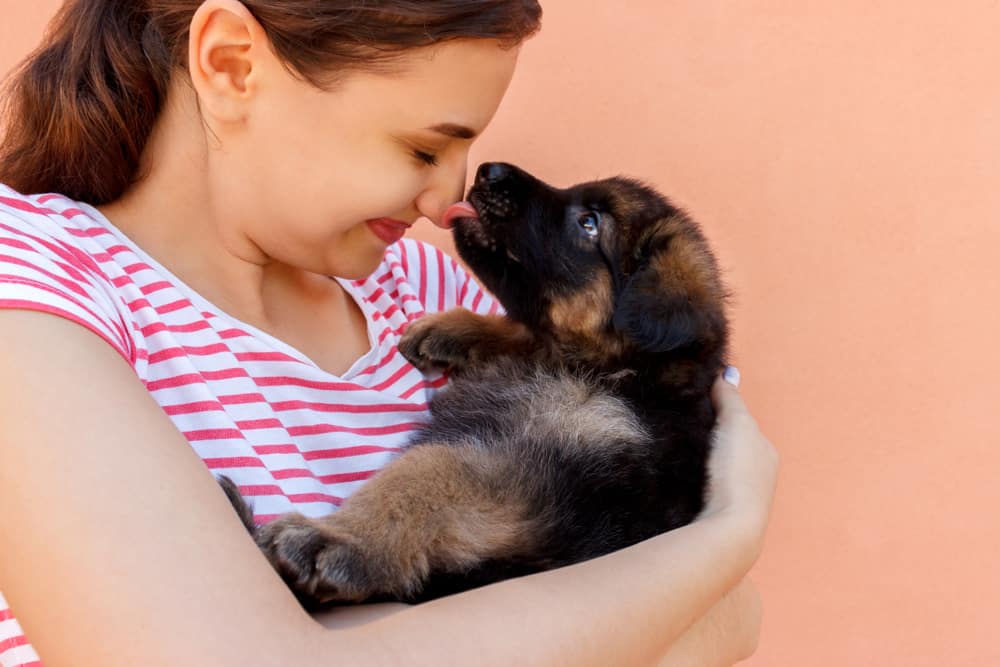
A Step By Step Timeline of German Shepherd Puppy Coat Changes
Every single week of your German Shepherd puppy’s life and growing up period is jam-packed with changes. The coat is no exception here, as we mentioned in the introduction here.
When your GSD puppy is born, all the puppies are typically (but not always) solid in color. The most common GSD puppy colors are black, grey, or – surprisingly – white.
Kennels Von Lotta, a German Shepherd breeder, and kennel have posted this picture of a litter of newborn neonate German Shepherd puppies that were born black.
Some GSD puppies may also be born with tan “socks” (paws).
See also: Are German Shepherd Puppies Born Black?
Whelping to 2 weeks
The puppies will start to show some differences in coat color and also coat length. Most German Shepherds grow up to have a medium-length coat, but some GSDs will have a long coat.
By the 10-day mark, breeders say it is often possible to tell if a GSD puppy is potentially going to grow up to have a long coat.
3 weeks to 8 weeks
Breeders state that the color-related coat changes can often be particularly dramatic in the first two months (8 weeks) of your puppy’s life.
When we say “dramatic,” this may also mean your puppy’s coat starts dark, gets light, and then gets dark again.
As South Florida Shepherds kennel and breeder explains, the very same parent dogs can produce GSD puppies with very different adult coat colors.
3 months to 6 months
If your GSD puppy’s coat includes bi-color, black, tan, sable, brindle or some variation thereof, the period of life from three to six months is usually when those colors will start to come in and show themselves.
Because the German Shepherd’s puppy coat can shed out in stages, this can also result in some pretty dramatic coat color changes.
7 months to 18 months
While the color and pattern differences are likely to get more subtle after the six-month mark, you may see another whole color transition take place between the age of seven months to 18 months.
19 months to 24+ months
Once your German Shepherd dog reaches the age of two years (24 months), it is much less likely you will see any future coat color changes.
If you do continue to see coat color changes, it is worth checking in with your dog’s breeder and with your canine veterinarian.
Sometimes a GSD dog’s coat color can change due to diet, excessive exposure to sunlight, and certain health issues.
Because nearly all GSDs are displaying their permanent adult coloration by 18 to 24 months, continued changes or a sudden recurrence of color changes should always be investigated further.
Now you know what to watch for as your little fluffy German Shepherd puppy starts to display their full and fabulous adult coat color and pattern.
























